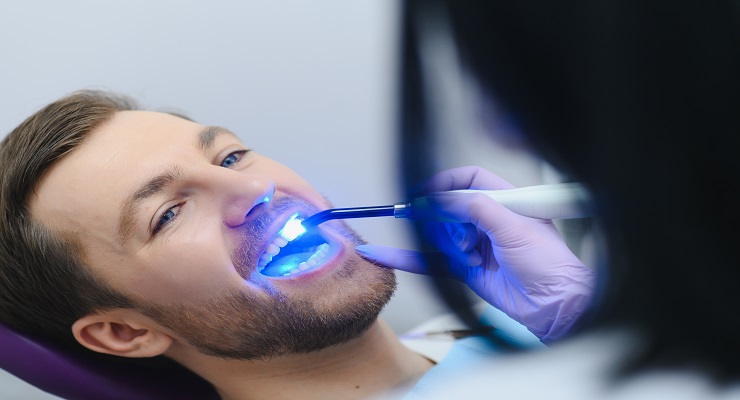(732) 444 - 8822

Are you aware of the impact of stress on your oral health? Stress is quite a common part of your daily life, and its effects can extend way beyond mental and emotional health. Stress can contribute to issues such as headaches, sleep issues, etc. However, this can lead to various dental problems like teeth grinding and gum disease.
Go through this blog to explore how stress affects your oral health and the common dental issues linked to it.
What Are The Common Oral Health Problems Caused By Stress?
Here are some common dental problems that you might face because of excessive stress:
Teeth Grinding
You can develop this habit because of a reaction to stress and anxiety. Stress-induced teeth grinding might increase due to sleep. The grinding action can cause teeth misalignment, sleep apnea, frequent headaches, jaw soreness, and even chipping of your teeth.
Gum Disease
Stress might weaken your immune system, making it hard for your body to fight infections and gum problems. Elevated cortisol levels can increase your gum inflammation. Poor oral hygiene and lifestyle changes can make you susceptible to bacterial infections. You might also experience bleeding from gums and even tooth loss.
Dry Mouth
Saliva can wash away the bacteria and food particles in your mouth. Stress can interfere with your saliva production, leading to dry mouth. Lack of saliva can increase the risk of cavities and bad breath. You can struggle to chew and swallow food as well. A dentist in Holmdel can help you.
Cold and Canker Sores
Stress is often linked to the appearance of painful sores in and around your mouth. Canker sores are small, painful ulcers that might appear inside your mouth due to stress or diet. Cold sores are fluid-filled and appear around the lips due to viruses triggered by stress.
How Can You Prevent Stress-Related Oral Health Issues?
Here are some ways to protect your oral well-being from the effects of stress and anxiety;
- Practice meditation, exercise every day, and maintain a healthy sleep routine to lower your stress levels as much as possible.
- Try to establish a proper work-life balance to avoid excessive stress and improve your health.
- Brush twice a day with fluoride toothpaste and floss daily to remove plaque and prevent gum disease.
- Use alcohol-free mouthwash to reduce the growth of bacteria, as they can affect your other organs, too.
- Visit the dentist every six months for professional cleanings and check-ups to avoid dental issues early on.
- Eat a balanced diet rich in fruits and whole grains. Drink plenty of water to keep your mouth hydrated and help saliva production.
- Avoid tobacco, alcohol, and excessive caffeine, as they can worsen your oral health over time.
When Should You See A Dentist?
Are you experiencing any jaw pain or tooth sensitivity? It might be the right time for you to see a dentist. Watch out for other signs as well, such as bleeding, swollen or receding gums. If you keep experiencing canker or cold sores very frequently, seek treatment immediately.
You must learn to manage your stress to maintain good oral health. A dental professional can provide you with guidance on stress-related oral problems, recommend a protective mouthguard for teeth grinding, and offer treatments for gum disease and dry mouth.
Are you ready to take charge of your stress and oral well-being? Contact us today!



